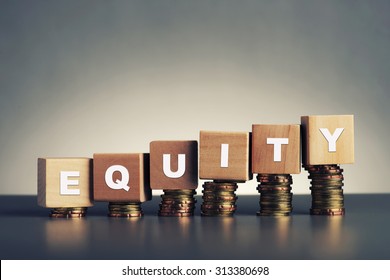The World of Private Equity
The term 'Private Equity' simply refers to capital that is invested in private companies.A Private Equity fund manager is given capital from its own Institutional Investors (usually a mix of pension funds, insurance companies and fund-of-funds) to invest in private companies. The investments can be for small minority stakes, majority buyouts or taking public companies private.The fund manager has 5 years to identify investment opportunities and deploy the fund; and a further 5 years to realise all the investments and return the capital to its own investors.The big challenge for the fund manager is how to do that consistently and generate good returns for its investors without taking on excessive risks.

M&A Advisors
M&A (Mergers and Acquisitions) advisors, also known as Corporate Finance advisors or Investment Bankers, are the ones who coordinate the deal processes. They are engaged by the buyers and the sellers to do everything from financial models and valuations to project-managing the due diligence.Every major bank and accountancy firm offers Corporate Finance advice and there are many specialist firms who focus exclusively on Corporate Finance. It can get even more specialised and have some firms who only focus on Corporate Finance in a particular sector like retail.



Due Diligence
Due diligence is the process of evaluating a new investment opportunity. The different types of due diligence include:Financial - how has the company performed historically and how is it expected to perform in the future?Commercial - details of the market positioning, competitors, growth opportunities etc.Operational - how does the company operate, is it sustainable, has there been adequate investment?Legal - what are the legal risks, liabilities etc?Management - how are they likely to perform and what changes are needed to the management team to help the company deliver its business plan?There are typically several phases of due diligence depending on the opportunity. It may start with Commercial where the market is changing and the investor wants to understand the potential opportunities (and risks) for the investment. Or it could be Management, who will be crucial in delivering the growth. Each case is different.

Accountants

Lawyers

Consultants
Senior Management
Due diligence is carried out on the management team to understand where there may be changes needed or gaps filled. It may be that the founder of the company has grown it successfully to where it is today, but a more experienced CEO is needed to deliver the next phase of growth. Or perhaps there is a gap for a Commercial Director. It is important for the fund manager to understand the strengths and weaknesses of a company's senior management team before going ahead with an investment.

Executive Search

Due Diligence

Financing
The financing structure of Private Equity investments consists of a number different tiers.Check out the tiers and their respective seniority (which goes from the bottom up to the top)

Equity
Finally, there is equity which is the most expensive form of financing. It is also the highest risk because equity has no value until all the other financing facilities (which are more senior) have been repaid.
PIK Loans / Notes
After mezzanine there are PIK loan-notes, which are the main form of financing provided by Private Equity funds. These have the highest interest rates, but interest is 'rolled-up' and not paid out until the company is sold.
Mezzanine
After debt, there is mezzanine, which is 'quasi-equity' financing since it is unsecured but has a regular repayment schedule. This is also provided by banks but is less senior than debt so more expensive.

Senior Debt
The most senior is debt, which is the cheapest form of financing and the lowest risk in the capital structure as it is secured on the company's assets. This means that if something goes wrong, the debt providers (who are generally banks) get their money back first.

Origination
The process of finding companies to invest in is called 'Origination'.The two main channels for origination are:1) deal processes managed by M&A Advisors2) direct connections with companies and their shareholdersFinding investments is a long term process, driven through relationships with different parties. You must be seen as credible by advisors and potential partners by shareholders.

The Exit
The 'exit' is the process in which the Private Equity fund manager sells a company in its portfolio.This is generally coordinated by an M&A Advisor in a similar way to them coordinating the original investment. They seek out potential acquirers (who may be other Private Equity funds or large companies), share information for the due diligence process and liaise with all the parties involved all the way through to completion.In most cases, Private Equity funds sells all their shares in a company on exit, but not always. They can retain a share in order to benefit from continued growth of the company, or they may be required to if their exit is through an IPO.

The Fund
The Private Equity fund manager and the Fund are two separate entities. The Fund is a partnership which consists of a collection of Institutional Investors known as Limited Partners (LPs).The LPs commit to invest an amount of capital (which is generally different for each LP) into the Fund for a period of up to 10 years (a maximum of 5 years to invest and 5 years to realise all the investments).Once the fund manager has invested most of the Fund (typically over 80%), they are able to raise a new Fund. The new Fund may have a totally different collection of LPs or a mixture of existing and new.The fund manager is then responsible for managing the existing investments from the first Fund and making new investments from the second Fund.

Report to Investors
Every month, the fund manager collects the accounts from all its portfolio companies. The information is analysed to see how their investments are performing and the investors receive a monthly update report.This report typically includes any significant events that have occurred during the month such as new investments, changes in performance of particular portfolio companies or new recruits.Every quarter, there is also a summary of the fund performance and the current value of the fund. Seeing as the fund is highly illiquid (i.e. its investments can't be sold quickly like shares on the stock-market), its valuations are simply estimates.Investors generally use this data to report to their own Directors and measure performance of their fund assets.
